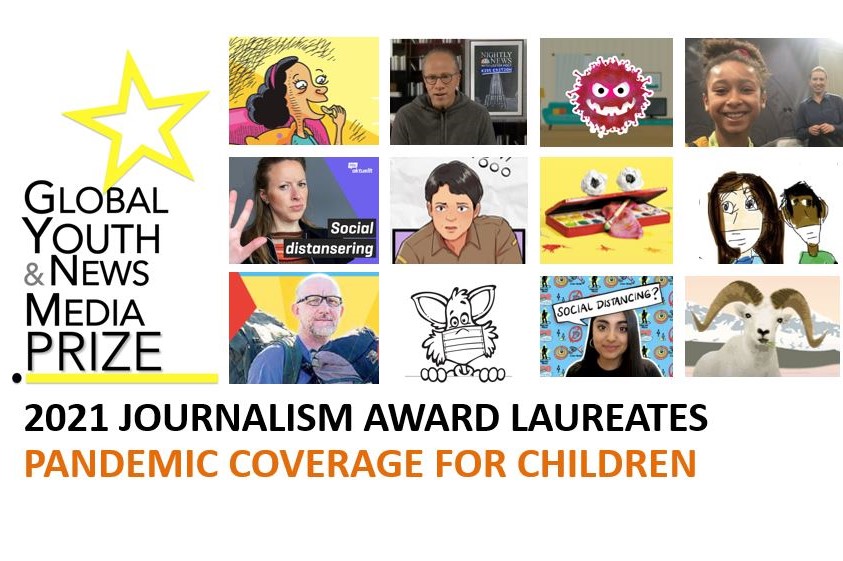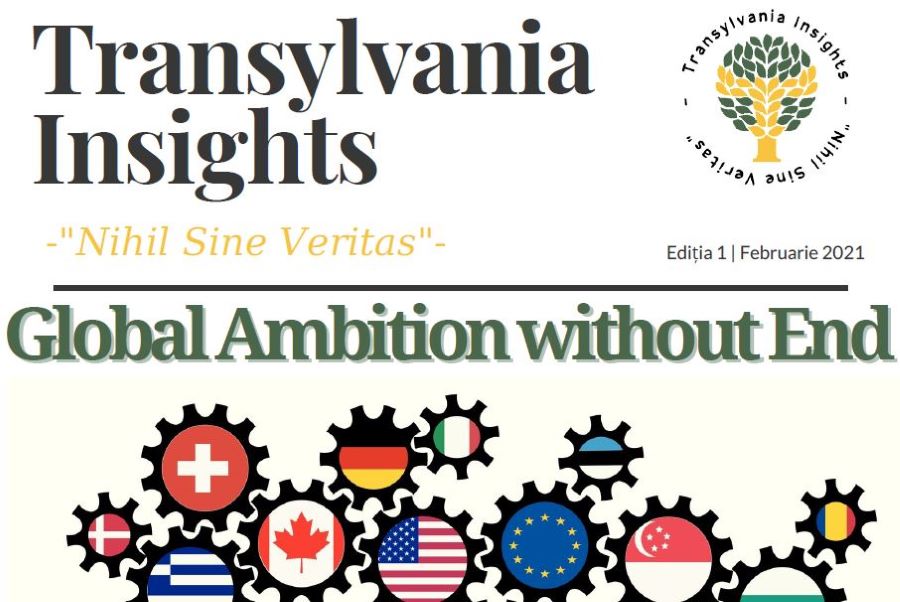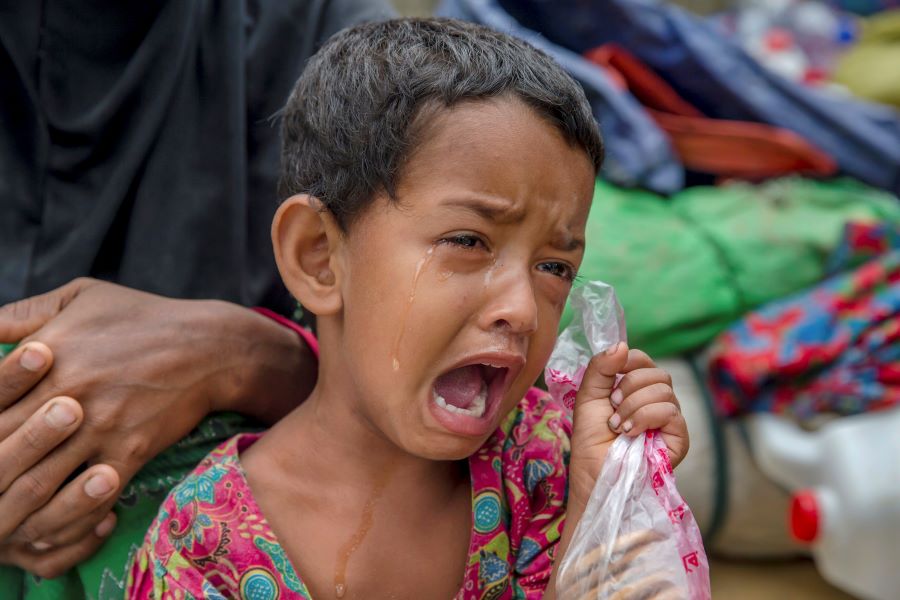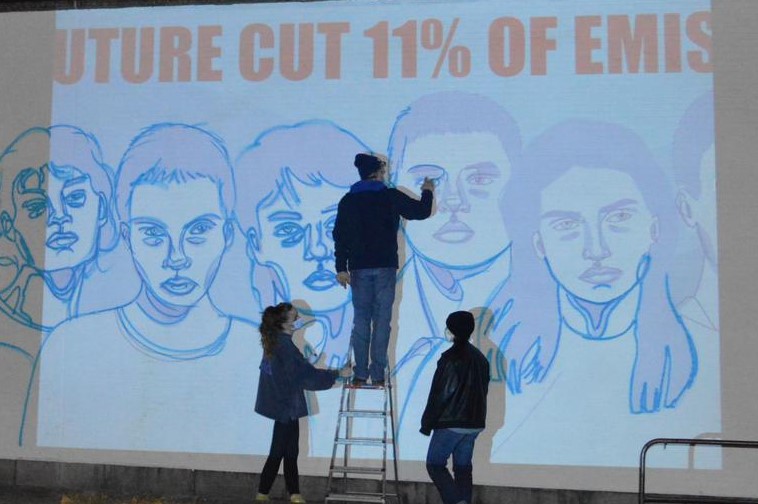
by Nolwazi Mjwara | 6 Jul 2021 | Contests, Educators' Catalog, Media Literacy, News Decoder Updates, Youth Voices
A News Decoder partner has awarded top prizes to news organizations in five countries for innovative reporting on COVID-19 for kids. News organizations in Denmark, Germany, Indonesia, Singapore and the United States have won top global reporting prizes for their...
After more than a year of COVID-19 reporting, it can be hard to find a fresh perspective on the pandemic, especially for children. But the gold-medal winners of the Global Youth and News Media Prize for pandemic reporting did just that. In an interview with the prize’s director, Aralynn McMane, News Decoder Board member Nolwazi Mjwara of UNESCO learns more about the innovative strategies taken by the winning news organizations to engage children in the storytelling process and support their mental health. Winning strategies included creating interactive games, dispatching youth correspondents to cover the pandemic and hosting a virtual art exhibition.
Exercise: How might you adopt some of these reporting practices in your own classrooms? Have your students create a game for kids to learn about issues in the news in a fun, positive way.

by Bernd Debusmann | 21 Jun 2021 | Decoders, Economy, Educators' Catalog, Immigration, World
The world’s population is aging. How are we to pay for the pensions and healthcare of a burgeoning number of elderly? Elderly exercise with wooden dumbbells in Tokyo, Japan, 16 September 2019. (EPA-EFE/FRANCK ROBICHON) Call it baby bust and oldster boom — two...
Population growth has long been seen as a threat to humanity, and government efforts to limit births have either failed (India) or led to imbalances and inequities (China). Bernd Debusmann takes a look at the problems that a slowing rate in population growth poses for societies — problems that younger generations will need to manage in coming decades. Global aging will require tough decisions so societies can support the elderly — decisions your students will be asked to make.
Exercise: Ask your students to examine their country’s demographic trends and to compare its policies with those pursued by nations with a similar demographic outlook.

by Paul Radford | 15 Jun 2021 | Decoders, Educators' Catalog, Eyewitness, Sport, World
Dogged by corruption and politics, the Olympic Games may seem outmoded. But their ideals survive, and the Games motivate athletes and excite fans. Greek actress Xanthi Georgiou lights the Olympic Torch, Athens, Greece, 19 March 2020. (EPA-EFE/ARIS MESSINIS / POOL)...
Paul Radford has covered 17 Olympic Games, and he displays his vast experience in this “decoder” that shows why the global sporting event still matters. Radford acknowledges the scandals and politics that have tarnished the image of the modern Games and made skeptics of many fans, while examining the high ideals that led to their creation. Like the Games, youth today are torn between idealism and skepticism born of frustration with their elders’ inability to resolve the world’s biggest problems. As Radford writes, it’s a tricky balance between idealism and skepticism.
Exercise: Organize a debate in class on the resolution, “The Olympic Games Should Be Abolished”.

by Varun Singh | 7 Jun 2021 | Climate change, Educators' Catalog, Environment, La Jolla Country Day School, Student Posts, World, Youth Voices
As arid San Diego struggles to ensure adequate water supplies, the city can look to Cape Town and Lima for examples of how to dodge disaster. Water drops from a spout at a water purification facility in San Diego, California, 8 May 2015. (AP Photo/Gregory Bull) San...
News Decoder encourages students to look beyond their immediate surroundings and to connect the dots around the globe. Varun Singh, a resident of San Diego in California and a student at La Jolla Country Day School, turned to Cape Town, South Africa and Lima, Peru for examples of how his city could manage its water crisis. The next generation of leaders will need to be adept at finding global solutions to problems besetting our societies, and Singh sets an example.
Exercise: Ask your students to identify a problem in their local community and to find examples of how a community in another country tackled the same challenge.

by Elisabeth Wachtel | 4 Jun 2021 | Educators' Catalog, News Decoder Updates, Transylvania College
They’ve worked with News Decoder for a year. Now students at a school in Romania have launched a magazine — a first in their city. The cover of the second edition of “Transylvania Insights” Inspired by their work with News Decoder, students at...
Ioan Pristavu and Octavian-Anton Ghisa, students at Transylvania College in Romania, launched a school magazine that offers a platform for fellow students to examine meaty issues ranging from the impact of COVID-19 on stock markets to racism in the UK’s royal family. Their initiative illustrates the impact that News Decoder seeks to have on students at our partner schools, who work with our experienced correspondents on the world’s most pressing issues.
Exercise: Ask your students to list issues they would want to explore in a school magazine and how they would report on them.

by Tara Heidger | 25 May 2021 | Climate change, Educators' Catalog, Environment, Human Rights, Immigration, Politics, World
Climate change is uprooting more and more people from their homes. But managed sensibly, migration can help nations adapt to global warming. A Rohingya girl at a refugee camp in Kutupalong, Bangladesh (AP Photo/Dar Yasin) Growing numbers of people around the world,...
Migration has been in the headlines in recent years and given a lift to populist politicians who predict that climate migrants will soon be flooding across borders. News Decoder correspondent Tara Heidger examines the data to tell a different story: that most individuals uprooted because of conflict, disasters or climate change remain within their countries, and that migration, managed well, can be a sensible response to climate change.

by Maya Barr | 19 May 2021 | Americas, Educators' Catalog, Health and Wellness, Hewitt, Human Rights, Student Posts, Youth Voices
More people have died of COVID-19 in the U.S. than in any other nation. Will the suffering breathe new life into efforts to reform a flawed system? Protesters in support of a single-payer healthcare system, New York City, 24 July 2017 (EPA/JUSTIN LANE) This is the...
The U.S. healthcare system is complicated. But that did not deter Maya Barr of The Hewitt School from examining the system’s shortcomings, which have been exposed during COVID-19. For her research, Barr dug into data from the Census Bureau, the U.S. Centers for Disease Control and Prevention, Pew Research Center and Johns Hopkins, as well as reports by the Kaiser Family Foundation and the American Hospital Association. Barr weighs the pros and cons regarding a single-payer system in her balanced, forward-looking report.

by Clarice Gillian Achola | 18 May 2021 | African Leadership Academy, Discovery, Educators' Catalog, Health and Wellness, Identity, Personal Reflections, Student Posts, Youth Voices
Mocked for my dark skin, I long loathed myself and yearned for a lighter complexion. But now I fight colourism and defend diversity. “Leaning away from un-African beauty standards,” by Alana Muchemi, August 2020. The author is in the yellow shirt....
Adolescence is a time of self-discovery, and Clarice Gillian Achola of the African Leadership Academy finds that the discrimination she has faced since her days on the playground plagues large numbers of girls and women with dark skin. With detail and sensitivity, the author gives shape to the abstract notion of colourism, then moves from the first to the third person pronoun as she extends her personal battle to a broader campaign to save others from bigotry.

by Gustav Paulander, Henrik Skaringer and Thomas Winship | 7 May 2021 | Climate change, Educators' Catalog, Environment, European School Brussels, Student Posts, Youth Voices
Individual acts to shrink our carbon footprint are fine. But to prevent a climate disaster on Earth, governments must pass laws to cut carbon emissions. News Decoder · The Great Acceleration The numbers are shocking. In just seven decades, our population has more than...
In this podcast, three students from the European School of Brussels II argue that individual acts to shrink our carbon footprint are fine, but governments must pass laws to cut carbon emissions to prevent a climate catastrophe. Gustav Paulander, Henrik Skaringer and Thomas Winship examine “The Great Acceleration” – the dramatic surge in growth across a large range of measures of human activity since the mid-20th Century – and what it implies for our planet’s future.

by Miriam Hernandez | 23 Apr 2021 | Art, Contest winners, Contests, Culture, Educators' Catalog, Identity, Immigration, Personal Reflections, Student Posts, Westover School, Youth Voices
My family came to the U.S. from Mexico. I used to be ashamed of our humble lifestyle. I offer these photos to show I’m now proud. This story won a third prize in News Decoder’s Ninth Storytelling Contest. Originally from Zapotitlan Palmas, a small town in...
Many students have much to say, but freeze when asked to put pen to paper. Asking them to first engage in other forms of self-reflection may make it easier to produce powerful written texts. Miriam Hernandez of Westover School demonstrates this point with her piece on growing up in the United States as a daughter of Mexican immigrants. Hernandez began with uncaptioned photographs of her family’s surroundings — a dinner table, a kitchen sink, a breeze through the front door — and later produced accompanying text — simple, direct, unvarnished — that complements the photos. Together, the pictures and text offer a candid glimpse of the author’s upbringing and how she came to terms with her heritage.
Exercise: Ask your students to take a series of photographs of life at home and to then write about what the images represent to them.










